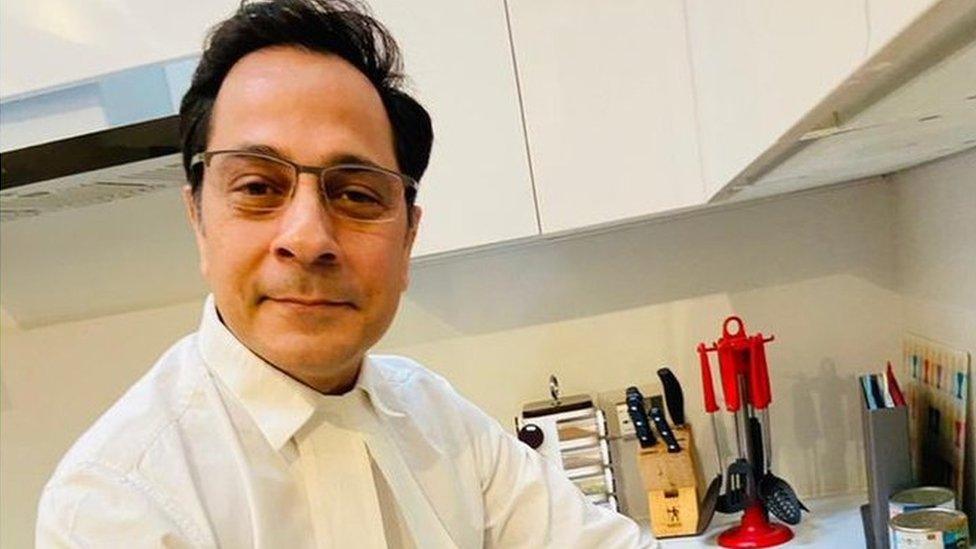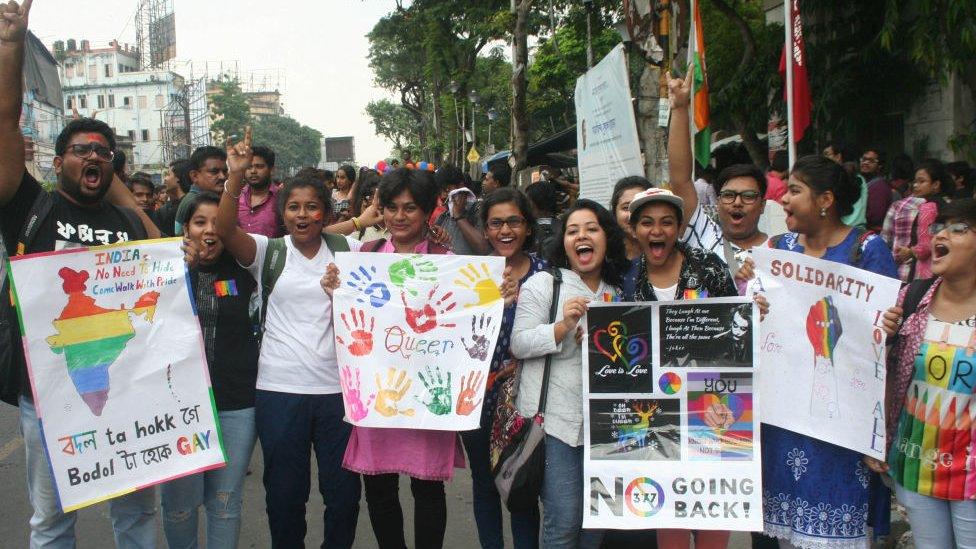Saurabh Kirpal: The man who could be India's first openly gay judge
- Published

Saurabh Kirpal could become India's first openly gay judge.
A Supreme Court panel in India has recommended the name of an openly gay lawyer to be a judge in what is being described as a "milestone" for LGBTQ rights. Legal journalist Suchitra Mohanty reports.
The top court's collegium, a committee headed by the country's chief justice, has proposed senior advocate Saurabh Kirpal's name to become a Delhi High Court judge.
The process of appointing a judge in India involves recommendations from the collegium followed by a formal approval from the federal government.
It's widely believed that Prime Minister Narendra Modi's government is likely to accept Mr Kirpal's name in the coming weeks.
In 2018, the Supreme Court decriminalised gay sex in a landmark ruling which was seen as a huge victory for the country's LGBTQ population - Mr Kirpal was the lawyer for two key petitioners in the case.
Attitudes on the ground, however, are changing at a slow pace as members of the community still face discrimination and harassment in daily life. Activists have called for specific laws to help the community fight the prejudices they face while trying to access jobs and healthcare.
In fact, Mr Kirpal also believes that his sexual orientation came in the way of his appointment earlier. The collegium first considered him for the post in 2018, but deferred its decision at least thrice.
This was allegedly due to the federal government's background check, external which flagged Mr Kirpal's partner, a foreign national, as a potential security risk, a claim the lawyer has dismissed.
"The fact that my partner of 20 years is a person of foreign origin is a security risk is such a specious reason that it leaves one to believe that it is not the whole truth. That is the reason I believe my sexuality is the reason why my candidature has not been considered for elevation as a judge," the 49-year-old told a TV channel last year.

In 2018, the Supreme Court decriminalised gay sex in a landmark ruling.
In 2020, he said he was in two minds, external about his name being sent for the post, but eventually agreed because he thought he could be a role model for the LGBTQ community.
His colleagues have welcomed the decision.
Vikas Singh, a former additional solicitor general who has known Mr Kirpal for years, welcomed the collegium's decision.
"The country has evolved with the times," Mr Singh told the BBC.
Senior lawyer Geeta Luthra also told the BBC that Mr Kirpal was "bright", "exceptional" and "deserving".
"Saurabh Kirpal's personal choice of sexual partner should have no role in his recommendation for being a judge in the Delhi High Court. We have to give precedence to merit and calibre," she said.
Mr Kirpal studied physics at New Delhi's St. Stephen's College before going to Oxford University on a scholarship for a law degree.
He also has a master's degree from Cambridge University.
He worked briefly with the United Nations in Geneva before returning to India in the 1990s. Since then, he has practised in the Supreme Court, arguing several important cases in the fields of constitutional, commercial, civil and criminal law.
He has also assisted former attorney general Mukul Rohatgi, a stint Mr Singh believes sharpened Mr Kirpal's skills and understanding of the law.
Mr Kirpal has said that he considers two people as his biggest influences in the field of law - his father and Mr Rohatgi.
Mr Kirpal's father, BN Kirpal, served as India's chief justice.
Sharif D Rangnekar, a former journalist and author of Straight to Normal: My Life as a Gay Man, said the recommendation was a "historic" moment for the community.
"You never know how many more lawyers will now come out as queer, and not feel discriminated," he told the Press Trust of India.